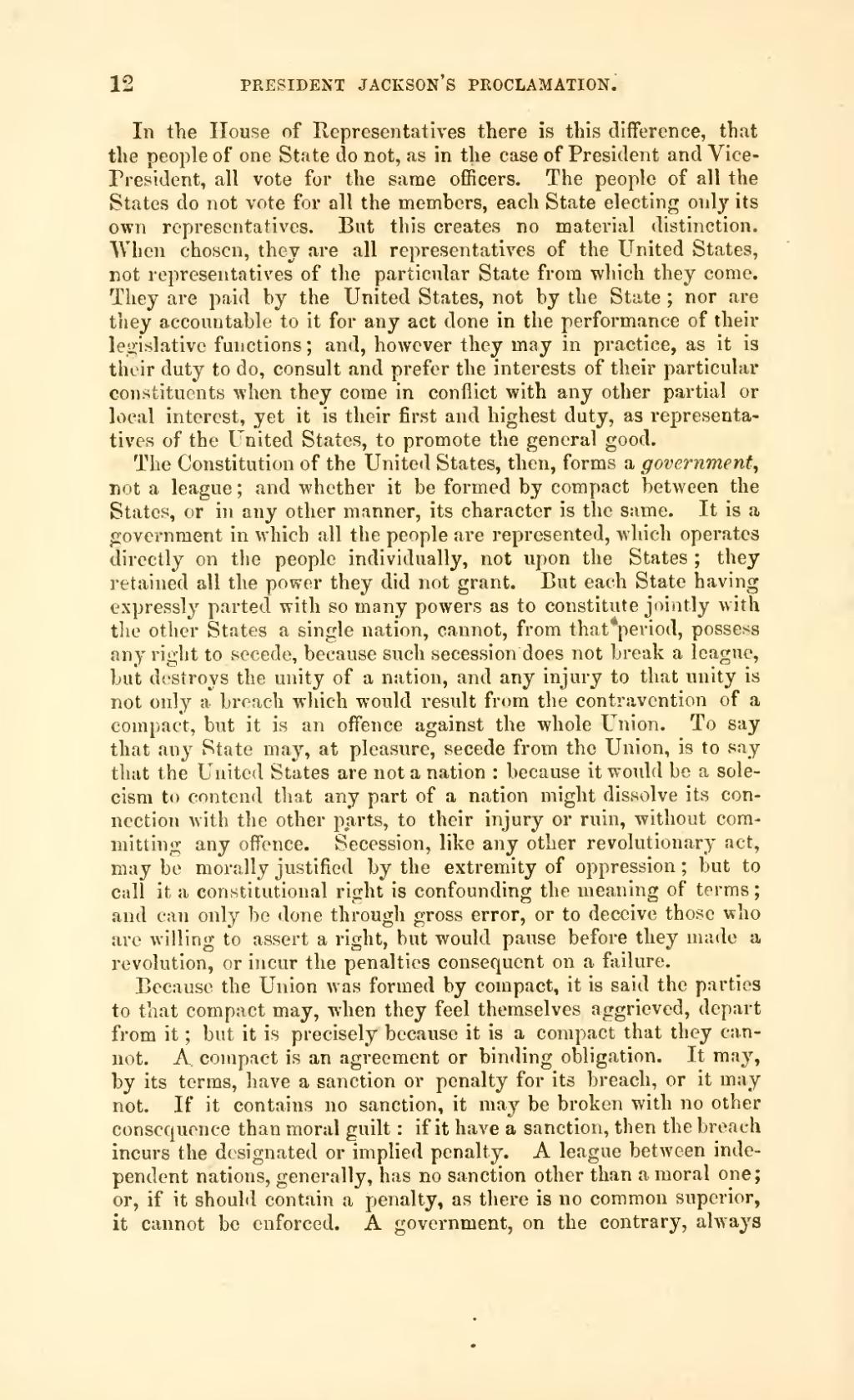In the House of Representatives there is this difference, that the people of one State do not, as in the case of President and Vice-President, all vote for the same officers. The people of all the States do not vote for all the members, each State electing only its own representatives. But this creates no material distinction. When chosen, they are all representatives of the United States, not representatives of the particular State from which they come. They are paid by the United States, not by the State; nor are they accountable to it for any act done in the performance of their legislative functions; and, however they may in practice, as it is their duty to do, consult and prefer the interests of their particular constituents when they come in conflict with any other partial or local interest, yet it is their first and highest duty, as representatives of the United States, to promote the general good.
The Constitution of the United States, then, forms a government, not a league; and whether it be formed by compact between the States, or in any other manner, its character is the same. It is a government in which all the people are represented, which operates directly on the people individually, not upon the States; they retained all the power they did not grant. But each State having expressly parted with so many powers as to constitute jointly with the other States a single nation, cannot, from that period, possess any right to secede, because such secession does not break a league, but destroys the unity of a nation, and any injury to that unity is not only a breach which would result from the contravention of a compact, but it is an offence against the whole Union. To say that any State may, at pleasure, secede from the Union, is to say that the United States are not a nation: because it would be a solecism to contend that any part of a nation might dissolve its connection with the other parts, to their injury or ruin, without committing any offence. Secession, like any other revolutionary act, may be morally justified by the extremity of oppression; but to call it a constitutional right is confounding the meaning of terms; and can only be done through gross error, or to deceive those who are willing to assert a right, but would pause before they made a revolution, or incur the penalties consequent on a failure.
Because the Union was formed by compact, it is said the parties to that compact may, when they feel themselves aggrieved, depart from it; but it is precisely because it is a compact that they cannot. A compact is an agreement or binding obligation. It may, by its terms, have a sanction or penalty for its breach, or it may not. If it contains no sanction, it may be broken with no other consequence than moral guilt: if it have a sanction, then the breach incurs the designated or implied penalty. A league between independent nations, generally, has no sanction other than a moral one; or, if it should contain a penalty, as there is no common superior, it cannot be enforced. A government, on the contrary, always
